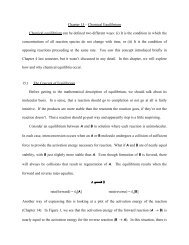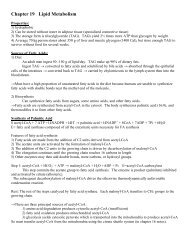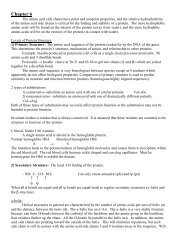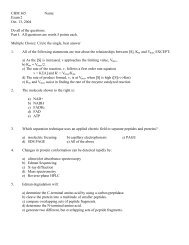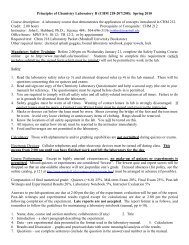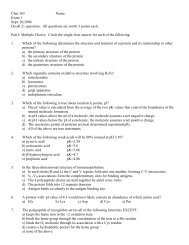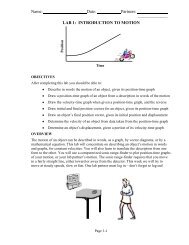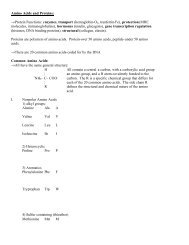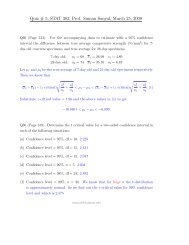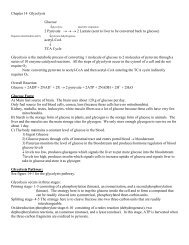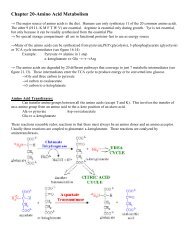THE DHAMMAPADA: THE WAY OF THE BUDDHA, VOL. 9-12 The ...
THE DHAMMAPADA: THE WAY OF THE BUDDHA, VOL. 9-12 The ...
THE DHAMMAPADA: THE WAY OF THE BUDDHA, VOL. 9-12 The ...
Create successful ePaper yourself
Turn your PDF publications into a flip-book with our unique Google optimized e-Paper software.
202 <strong>THE</strong> <strong>DHAMMAPADA</strong>: <strong>THE</strong> <strong>WAY</strong> <strong>OF</strong> <strong>THE</strong> <strong>BUDDHA</strong>, <strong>VOL</strong>. 9-<strong>12</strong><br />
<strong>The</strong> Dhammapada: <strong>The</strong> Way of the Buddha, Vol. 11<br />
Chapter 1 Hold your tongue<br />
Audio:Yes Video:No Length:0 mins<br />
HOLD YOUR TONGUE. DO NOT EXALT YOURSELF BUT LIGHTEN <strong>THE</strong> <strong>WAY</strong> FOR YOUR WORDS<br />
ARE SWEET.<br />
FOLLOW <strong>THE</strong> TRUTH <strong>OF</strong> <strong>THE</strong> <strong>WAY</strong>. REFLECT UPON IT. MAKE IT YOUR OWN. LIVE IT. IT WILL<br />
AL<strong>WAY</strong>S SUSTAIN YOU.<br />
DO NOT TURN A<strong>WAY</strong> WHAT IS GIVEN YOU, NOR REACH OUT FOR WHAT IS GIVEN TO O<strong>THE</strong>RS,<br />
LEST YOU DISTURB YOUR QUIETNESS.<br />
GIVE THANKS FOR WHAT HAS BEEN GIVEN YOU, HOWEVER LITTLE. BE PURE, NEVER FALTER.<br />
Life is full of complications. Even when we are born there is a string attached. <strong>The</strong> greatest complication, the<br />
source of all complications is unawareness, unconsciousness. We are focused on the objective world and we are<br />
totally unaware who we are.<br />
<strong>The</strong> whole message of Gautama the Buddha is to turn in. <strong>The</strong> message is simple, but the implementation is<br />
arduous. It is arduous because for many, many lives we have lived outwardly, we have lived the life of an extrovert.<br />
We have completely forgotten how to relate with our own beings, how to be with ourselves. We have forgotten the<br />
path, the language, the method. Not only that, we have become completely oblivious that there is an interiority<br />
to us. We think as if we have only an outside. Now that is stupid. <strong>The</strong> outside can exist only with an inside;<br />
without the inside the outside is impossible. If we can see out, we can also see in. In fact, to see in is easier<br />
because it is there that we are rooted.<br />
But never seeing in, we go on rushing in all directions, doing all kinds of things, not knowing why, just because<br />
others are doing them. We are imitating, following. We become carbon copies. That’s the most ugly thing in life:<br />
to be a carbon copy. Man can never be blissful unless he is original, unless he knows his original face.<br />
I have heard a very beautiful story. It may be true, it may not be true. Its truth is not historical but, far more<br />
significant, it is metaphorical.<br />
<strong>The</strong> story is: Alexander the Great was on his way to India. He met a fakir sitting by the roadside with a round,<br />
small, crystal-like object in his hand.<br />
”What’s that?” inquired Alexander.<br />
”I will not tell you,” said the fakir, ”but I will bet you that it is heavier than all your gold, silver and jewels.”<br />
Alexander ordered an enormous balance to be brought along with all of his treasures. On one side of the balance<br />
he piled all the treasures; the fakir put his small round crystal on the other side and, lo! it was heavier. Down it<br />
went and the vast treasures were lifted into the air. Alexander was amazed.<br />
<strong>The</strong>n the fakir said, ”I will show you one more thing.” He took a little dust and spread it over the crystal. It<br />
immediately became light, went up into the air, and the treasures came down.<br />
Alexander could not contain his amazement anymore and asked the fakir, ”Please, you must tell me. What is<br />
this object?”<br />
Said the fakir, ”It is nothing special. It is only a human eye.”<br />
Man has the capacity to see himself too, but that capacity is full of dust. We have an inner eye too the third<br />
eye but that eye is not functioning, and we have not used it for so long that it has gone out of function completely;<br />
it has become a paralyzed part in our being.<br />
Now even physiologists have discovered a certain part in the human brain which seems to be absolutely superfluous.<br />
<strong>The</strong>y are puzzled because nature never creates anything superfluous. It must have a purpose, but it seems<br />
to have no purpose. It can be removed and that will not affect you at all.<br />
But all the mystics down the ages have been saying the same thing of course, not in scientific terminology; they<br />
have their own way of saying it. <strong>The</strong>y call it the third eye. A certain part of your mind is capable of functioning<br />
in an introvert way only. Meditation creates the right atmosphere, the right climate for it to function.<br />
Meditation simply means removing the dust that the fakir threw on the eye. And the dust is nothing but the<br />
whole mind process of thoughts, desires, imagination, memory. If you become capable of a few intervals, gaps,<br />
when all thought processes cease... suddenly you are and there is nothing to see inside. <strong>The</strong>n the turning happens;<br />
then immediately there is a radical change in your vision, your gestalt changes. <strong>The</strong> outside world disappears and<br />
the inside world appears.<br />
It is because of this that the mystics say that the outside world is illusory. Not that it does not exist; it exists,<br />
but it is illusory because the mystic knows a certain state of consciousness when it simply evaporates, it is found no<br />
more. You enter into a totally different dimension: the dimension of bliss, the dimension of peace, the dimension<br />
of Buddha, Christ, Krishna.



